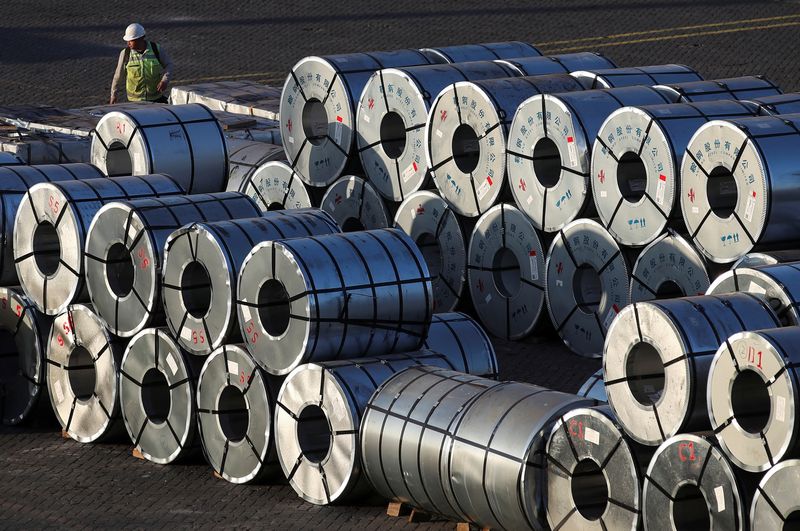By Lewis Jackson, Jiaxing Li and Amy Lv
BEIJING/HONG KONG (Reuters) -Commodity prices from steel to polysilicon have surged this month as Chinese investors bet Beijing is finally serious about addressing overcapacity across the world’s second-largest economy.
Prices for nine industrial commodities including coal, steel, polysilicon, a building block for solar panels, alumina and lithium carbonate have climbed by 10% to 68% this month while share prices in steelmakers, solar panel manufacturers and clean energy companies have outpaced the benchmark CSI 300 Index.
The moves coincide with Beijing’s call on July 1 to tackle “disorderly price competition,” or overcapacity, and an acknowledgement it intends to deal with a persistent problem fuelling deflation at home and trade barriers abroad.
Since then, state media has amplified that message with warnings against involution, a now-popular reference to competition so fierce it becomes self-destructive.
“I think that addressed a big concern for investors, which is the profit margin squeeze on some of the very promising sectors,” said Tai Hui, Asia Pacific chief market strategist at JPMorgan Asset Management.
Champions of the old economy including steel and coal and newer industries such as solar panels and electric vehicles are grappling with overcapacity and falling prices, which had previously prompted many warnings but little action.
This month, some of the reactions from ministries, regulators and local governments suggest Beijing’s signal is being received.
Two days after a top-level policy meeting on July 1 called for action, the industry ministry pledged to curb price wars in the solar sector. China’s photovoltaic industry index is up about 11% this month.
Polysilicon prices are up 68% after local media reported that the two biggest producers were preparing to buy up smaller rivals and consolidate the sector.
Last week, a lithium miner in northwest China was temporarily shut for non-compliant mining, leading speculators to bet that more closures could follow.
This week, prices for coking coal used to make steel rose to their daily limit for three consecutive sessions after the National Energy Administration ordered inspections at mines to check for excess production.
To be sure, Beijing has pushed supply-side reforms before, most recently about a decade ago to cut production in the cement, steel, glass and coal industries.
However, the task is more difficult this time due to higher levels of private ownership in many of these industries, misaligned incentives at the local and national levels, and limited options for other sectors to absorb lost jobs.


